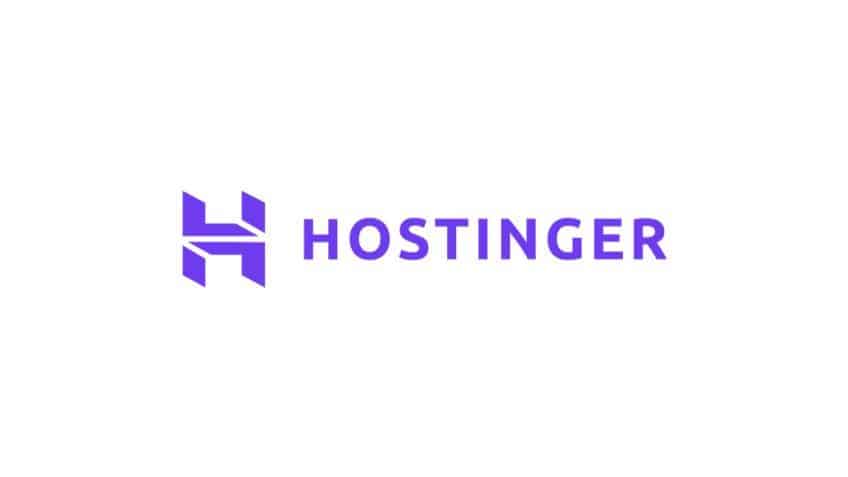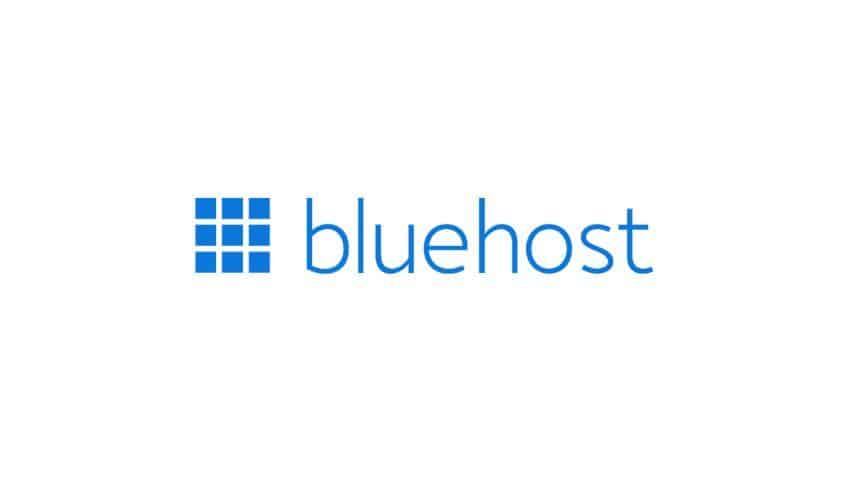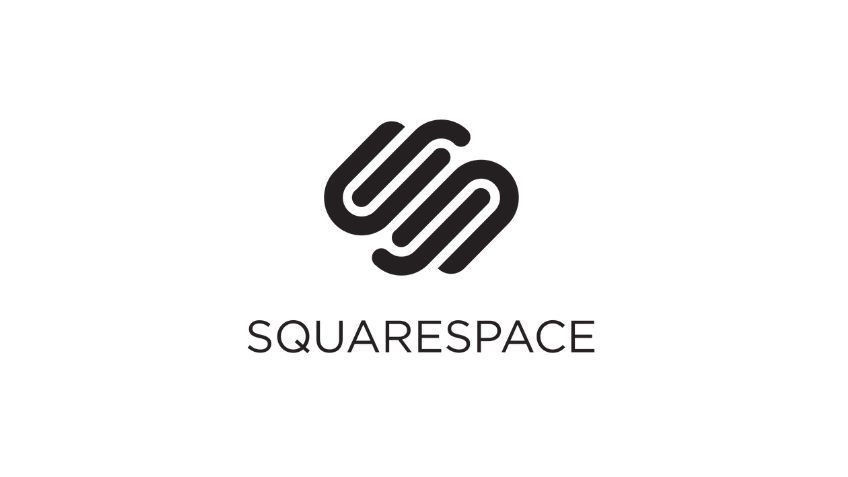With a lot of business tools, it doesn’t matter what you pick. We can’t say the same for website builders.
It matters. And it matters a lot. Once you pick one, you won’t be able to easily switch to another if you decide you don’t like it–you’ll likely have to rebuild your entire website from scratch. That’s really the biggest downside of website builders in general.
So, Should You Use a Website Builder?
If you’re starting a simple website that doesn’t depend on traffic or performance for its success, a website builder is a good choice.
Local and small business, service providers, ecommerce stores, portfolios, and similar types of sites will do just fine as long as you pick a website builder you’re going to stick with for the long-term.
Blogs and any other type of site that relies on traffic for ads, affiliate marketing, or anything similar will do much better with traditional hosting + WordPress instead. WordPress’s flexibility, mobility, and scalability are critical as your traffic grows. If you’re building a site like this, you don’t want to get stuck with something that can’t handle your growth.
If that sounds like you, we recommend Hostinger’s WordPress hosting–it’s cheap and comes with everything you need to get started.
Otherwise, keep scrolling. You’re in the right place.
The Best Website Builders: Our Top Picks in < 5 Minutes
Many traditional hosting providers, like Hostinger and Bluehost, offer a free website builder with their hosting plans.
They’re not as feature-rich as dedicated website builders. But this could be a good route if you want to keep the option of traditional hosting open. Hostinger lets you host up to 100 websites on the cheapest plan–you could use the website builder for some and another platform, like WordPress, for others–all without needing to purchase another plan.
Bluehost lets you host up to five websites on a single plan and includes a website builder that works with WordPress so you don’t have to choose between the two.
If you don’t care about traditional hosting and want a more feature-rich website builder, our top picks include:
- Wix – Best website builder overall
- Web.com – Best for very simple websites
- Shopify – Best for ecommerce stores
- Squarespace – Best for creatives
If you’re not building a simple four- or five-page website, an ecommerce store, or a site that relies heavily on visuals, Wix is the best there is.
Hostinger – Best Traditional Hosting + Website Builder Combo

Hostinger’s the cheapest option on our list–it starts at just $2.99 per month (1/5 the cost of most of the others).
Despite the low price tag, it lets you host up to 100 websites on a single plan–you likely won’t actually be able to host that many (you get 100 GB of storage in total). But it’s a great deal, even if you want to create a few sites.
But the best part is that you can use Hostinger’s website builder for some of your site and a platform like WordPress for others.
With that said, you won’t be able to transfer a website builder site to WordPress or vise versa. If you start with Hostinger’s website builder, you’re pretty much stuck with it. So, that immobile aspect of website builders is still present.
However, it gives you options and leaves doors open–something you won’t have with the other providers on our list.
In terms of actually building a website with the website builder, it’s one of the simpler and more approachable solutions on the market.
We interviewed a Hostinger user who needed a professional-looking website when she started her freelance writing business. She wasn’t technically inclined but noted that Hostinger is “great for anyone intimidated by the web.” Even with no experience, it took her under 24 hours to build her site.
The drag-and-drop functionality means great design is just a few clicks away. Plus, pages are automatically optimized for mobile or desktop, so your site looks great on every device with no extra work on your side.
You don’t have to start from scratch, either. Hostinger includes more than 100 professionally designed templates for you to customize. A major downside is that you’ll be locked into the template you choose–it’s not really possible to try another without rebuilding everything from scratch.
Wix and Squarespace give you more customizability, but Hostinger nails the basics.
If you get stuck on anything, there are plenty of resources available on its website, plus 24/7 customer support to get you back on track. Hostinger customers seem satisfied with both. “They’ll give you a canned response in some cases,” one user told us, but it “wasn’t a big deal” most of the time because the resource library on the Hostinger website is quite robust.
Bluehost – Best WordPress Website Builder

Bluehost isn’t as cheap as Hostinger, nor does it let you host as many websites. But it’s the only website builder on our list built on top of WordPress. You’ll get the benefits of WordPress–easy content creation, scalability, portability, and flexibility–with Bluehost’s builder added on.
If you decide you don’t like the website builder later, you don’t have to use it. You can switch to a different theme without starting over.
While getting started with WordPress isn’t quite as easy as a traditional website builder, it’s worth learning and you’ll be able to figure it out with a bit of elbow grease. It seems more complicated than it is.
“With no knowledge of WordPress when I started, it was a bit of a steep learning curve, but I figured everything out quickly enough,” said one user we interviewed. “WordPress is very intuitive, and if you can’t figure something out, you just have to Google it or check on YouTube, and you will likely find an answer.”
Another user we talked to loves how flexible WordPress is. It’s an open-source application, so the back-end code is widely available—allowing developers and creators to make their own themes, widgets, and plugins.
As such, there’s an infinite number of possibilities. Want to change up the look and feel? Switch your theme. Need a specific function, like a contact form, SEO guidance, an image optimizer, or something else? There’s probably a plugin for it.
And, if you want to get your hands dirty, you can jump into the backend yourself and customize to your heart’s desire.
“WordPress gave me everything I needed to create the blog I wanted,” one user told us. “It gave me an easy interface to post my blogs, as well as everything I needed or wanted in my blog: a subscription box, an author area; just the look I wanted and the flexibility to change things as needed.”
Bluehost plans also include helpful WordPress tools, like WonderSuite, WonderBlocks, step-by-step guides, video tutorials, and more, that make customizing your site as easy as possible.
However, the folks we interviewed all agreed on one thing: It’s not the most beginner-friendly website builder.
But if you’re willing to put in the work, learning even just the basics of WordPress can result in a massive return on investment. Not only will you be able to create a fully customized website, but you’ll have a valuable skill you can use going forward.
Wix – Best Traditional Website Builder Overall

If you don’t need the extra flexibility and mobility that Hostinger or Bluehost offer, Wix is truly the best, most feature-rich, and comprehensive website builder out there.
We typically try to avoid saying anything is “the best overall” because it’s usually not true. But it absolutely is in this case.
It’s the only true drag-and-drop builder on our list–others lock you in to a grid system to ensure your site always looks good, but Wix lets you place elements anywhere you want. It’s true customization freedom.
There are a few different places to start–one of the hundreds of templates or the AI creation tool. If you go the AI route, it’s like taking a Buzzfeed quiz–just answer a few questions and get a full website based on your answers. Either way, you can use it as a starting point and customize it as much as you want.
It’s truly as easy as it gets, while still allowing you ultimate freedom to do what you want. All the users we spoke to attest to how easy Wix was to use—without sacrificing the quality of the final product.
“[Wix] is very intuitive, and they give you great tools to create great websites,” one user told me. They also spoke highly of the hundreds of templates the builder offered, praising the variety of great-looking designs along with “its easy-to-use drag-and-drop builder.”
Aside from the builder itself, you’ll also get tools for bookings and appointments, marketing tools, lead capture forms, basic ecommerce functionality for small stores, restaurant management, and event management features on certain plans.
The catch? It’s expensive.
Especially after your promotional period ends. One of our interviewees said, “the price per month tends to be quite high.” In fact, it’s more than 5x the cost of something like Hostinger at the cheapest level.
Many of the features are also only offered as a a free trial. You can play around with it for a limited amount of time or uses to see how it works, but you’ll have to pay extra if you want to keep using it. It’s not really all that clear what’s free and what’s not once you get in and start building.
However, you can try the entire platform for free and build an whole website before paying. This gives you a chance to see if you like it.
Web.com — Best Website Builder for Very Simple Websites

Web.com is a great choice if you’re building a site with just a few pages. Small businesses, local service providers, and similar types of websites will do fine. Anything more than that and you’ll quickly wish you’d went elsewhere.
It’s straightforward, streamlined, and refreshingly simple. You won’t find (or have to pay for) advanced customization or hundreds of features–which is perfect if you don’t need those things anyway.
There are around 150 templates you can use to get started. All you have to is update the colors, fonts, text, and images to match your brand. It truly takes just a few minutes to build an entire professional-looking website.
There are also free marketing tools, including a QR generator, an AI copywriting tool, a lightweight CRM, and a basic photo editing build in.
Over time, you can scale up to higher tiers to add more features, like an online store, appointment scheduling, email marketing, analytics, and more. You even have the option to cross-sell products on marketplaces like Facebook, Instagram, Amazon, and Etsy, too.
It has all the basic functionality you’ll need for a simple website without the clutter.
However, it’s not the builder for you if you want to get deep in the weeds tweaking settings, fine-tuning details, or adjusting the spacing between two elements to get it just right. It’s also not all that great for blogging, either. If you try to do any of those things, you’ll find yourself feeling extremely limited.
Another thing to keep in mind is that its domain names, while free for the first year, cost three times as much–$37.99 per year–as traditional domain registrars.
So, you’ll get a much better deal if you move your domain elsewhere after your free year is up.
Pricing starts at $4.95 per month, which seems incredibly affordable compared to Wix. But after your first year, you’ll pay $15.99 per month for the same tier–making it only $1 cheaper than Wix.
Shopify – Best Website Builder for Ecommerce Stores

If ecommerce is going to be your main source of revenue, go with Shopify. It’s truly the best ecommerce platform on the market–by a lot.
With it, you’ll get everything you need to sell physical products, book appointments, schedule deliveries, manage shipping, handle multiple inventory locations, and a lot more. If you’re thinking… “that sounds too advanced,” it’s actually deceptively easy to use.
Plus, you it’s just as strong and approachable if you’re starting small and expect to grow.
You can certainly do many of the same things with other website builders, but Shopify ONLY does ecommerce. It doesn’t cater to regular websites or anyone other than folks selling stuff online.
Every product update, newsletter, tutorial, and guide is specifically for businesses like yours.
Plus, it’s a true all-in-one platform: website, online store, payment processor, order fulfillment, marketing tools, discounts, product variations, inventory management, you name it. If Shopify doesn’t have a built-in feature to do what you need, it offers the most diverse app marketplace in ecommerce.
Shopify has very few limits. You can sell as many items, styles, and varieties as you like on any channel.
There are 11 free themes to start with–or you can purchase one offered by Shopify or a third-party designer. From there, tweak a few elements, add all your pages, and you’re good to go. You need not be a tech whiz to make your first buck on Shopify.
By the time you add your content and images, you’ll already have a professional online storefront.
However, Shopify is pretty basic in terms of point-and-click design. It’s easy to make basic tweaks, but you won’t be able to make a truly custom website without the help of a developer.
Most people will be more than happy with the look and feel of their site.
Shopify plans start at $29 per month, making it the most expensive starting point on our list. When you consider all that you get and how much room there is to grow–you can’t really put a price on that for ecommerce stores. However, if you’re not selling products, it’s not the builder for you.
Squarespace – Best Website Builder for Creatives

Squarespace has been the go-to choice for creative professionals and business owners who really care about the look and feel of their websites.
Of the folks we interviewed for this post, everyone using and recommending Squarespace was creative-focused. We spoke to a web design expert who teaches students how to create jaw-dropping sites and an interior design blogger who uses Squarespace to feature gorgeous home tours.
If your brand and visuals are what draw people to your business, you’ll appreciate it’s wide range of stunning templates that look several bars better than any other builder on our list.
That’s straight out of the box, too. You really don’t need to do much to make your site stand out.
Aside from the template selections, the backend editor is user-friendly and intuitive. Even if you’re a beginner, like the newly graduated graphic designer that wants to build a portfolio or a photographer who wants to showcase their work, you’ll be able to build your website in less than 24 hours.
Squarespace is also a great option for influencers and content creators who use platforms like YouTube or TikTok. Squarespace offers a chance to expand your reach across multiple channels, and it plays nicely with just about every social channel.
All plans also include social media content creation tools and social selling options if you want to sell on social media.
However, it’s not without its fair share of drawbacks. While Squarespace takes gold for template quality, customization is an area of contention for the folks we interviewed.
One user enjoyed what Squarespace offered in terms of extra tools, like ecommerce functionality, integrated email marketing, and podcast support. However, they found it limiting when compared to the enormous customizability of WordPress. Not to mention, you might have to pay more for the plugins and widgets you need to make certain things work.
More specifically, the level of mobile customization is an area our users flagged. One user found it particularly frustrating, saying they essentially had to create your website twice—once for desktop and another time for mobile.
How We Chose Which Website Builders to Review
We chose all six website builders based on five criteria:
- Ease of Use
- Depth of Customization
- Scalability
- Ability to Earn Money
- Price
We took a look at dozens of the most popular website builders on the market today and benchmarked each of them against the above.
For each website builder we identified, we created a bare-bones website to test out its tools and features. We also took into account the things offered in paid premium plans.
Using this method, we were able to narrow down our list of more than a dozen website builders to the best. The six we chose best showcase the criteria above in unique—but effective—ways.
How We Reviewed Each Website Builder on Our List
At Quick Sprout, we believe that if you want to get actual insights about a product or service, you need to talk to actual users.
We didn’t want to trust the website builder’s marketing or even the testimonials you’ll see on review sites. Instead, we wanted to actual users–the people weeds deep in building and managing websites. Only then can you get the good, the bad, and the oh-so-frustrating.
We were able to connect with a few dozen people that used these website builders for their businesses.
Each person agreed to either a phone interview or a survey. Questions for both were identical, though some of our interviewees had a lot to say about their experience.
We took all of our research, interviews, and surveys and synthesized them into the post you are reading now.
What We Learned While Researching Website Builders
Since we don’t use website builders ourselves, we went into this project with a lot of assumptions. Along the way, we gained a ton of insight into where we were wrong, spot-on, or nearly there.
You’ll find a summary of what we discovered below.
Ease of Use Is Critical in the Beginning
The biggest draw of website builders is how easy they are to use. In comparison to building a WordPress site, they’re all easy. But when you start comparing them head-to-head, there are major differences between the builders we looked at.
Some are clearly built for beginners–they’re simple and straightforward with virtually no room to mess things up.
Others give you more freedom, but also more room to make mistakes. The best route for you depends on what you want–do you want the easiest or do you want control?
Depth of Customization Becomes Important Later
Being able to customize your website to the exact look and feel you want is crucial, especially as your site grows and you get more comfortable with the platform. Many of the folks we interviewed were happy for a while, but felt limited as they started to get into deeper customizations.
It’s basically inversely proportional to ease of use.
If you’re the type of person that likes to obsess over details, keep that in mind when you get started. A steeper learning curve may be worth it if you know you’re going to want to dive into the details later.
Scalability Is Often Overlooked
Switching to a new website builder three years in is going to be painful, no matter which website builder you choose. Most folks would tell you it’s not even worth doing unless you’re forced to.
As such, it’s really important to think about where your site’s going to go in the future.
